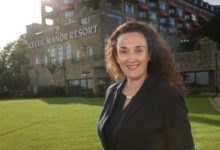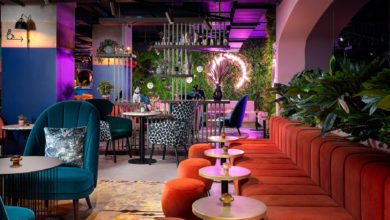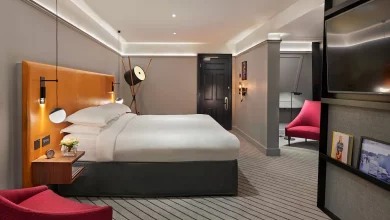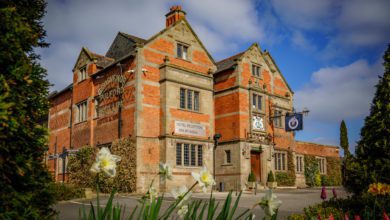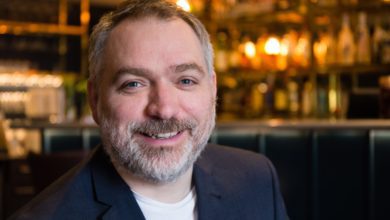Lionel Benjamin: ‘What we need is help’
Co-founder of AGO Hotels recounts the solutions he thinks would alleviate the sector’s burdens and why looking to upping country-wide tourism initiatives could be the key to growing the economy
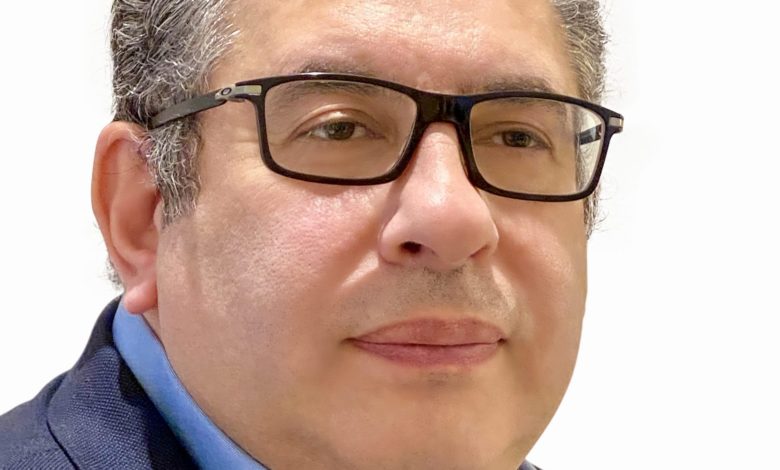
Can you tell us about your career leading up to starting AGO Hotels?
I’ve been in hospitality since 1983, close to 40 years now. I went to hotel school and then worked my way up the ladder afterwards from being a management trainee with Hilton to being the operations director at the Savoy, and then onto the Hilton Metropole on Edgware Road where I was also the operations director. In both of those positions, I was very integral to the sale of the Savoy group and then the Integra selling process for the Hilton London Metropole and the Birmingham Metropole, which was Hilton’s largest ever sale of owned assets at the time. I got very involved in the presentation of the hotel to potential buyers and showing them why it was such a great opportunity. That really gave me a flavour for the hotel business.
In the last 20 years, I switched to being involved in the transaction stage after the sale of the Metropoles. When I brought in the buyer, Hilton decided that I had an eye for the business of hotels and offered me the opportunity to join the Hilton Real Estate Team outside of the Americas.
We were responsible for the sale of 10 Hilton Hotels in six jurisdictions across Europe, and again, I got very involved in that process over a two-year period where we prepared the hotels for sale. My role as someone who came from operations was to identify the opportunities where capital investment into these old Hilton assets was going to create upside opportunity on the purchase price. This would create more of an appetite for a buyer to come in and take on the properties. We then showed around these hotels in Europe to the prospective buyers.
I moved in from the real estate team to the integration team, as Blackstone wanted to export the brands from America to the rest of the world. The Hilton brands that were there were DoubleTree by Hilton, Hampton by Hilton, and Hilton Garden Inn. I went to the States and spent time there learning those three brands. I then came back to the UK and was a part of the team that launched those three brands in the UK as a stepping stone for the rest of the world. After I opened those Hilton hotels in the UK, I met with various owners who were looking at these brands to develop Hilton hotels. One of those developers was the Ability Group, who were moving from residential UK real estate into the hotel space.
After two and a half years of being my client, they wanted more of my time, but as my role expanded into Europe, I was less available to my UK clients because my portfolio broadened. As the Ability Group grew, the chairman and CEO spoke to me about joining his company as asset manager, so I joined in January 2010 and spent four years with them.
I then joined Topland in November of 2013. In short order, using their vast firepower of wealth to acquire 28 hotels in 14 months in the UK, I went on to consolidate those 28 Hotels into one portfolio, creating an operational head office to run those properties and centralise the team. I then decided to brand the hotels, and rather than use one of the established brands that have all the protocols of brand standards, I decided we’ll set up our own brand. One of the brands that we got on that acquisition trail was Hallmark hotels, which we expanded and created a sub brand called Hallmark Inns. Having done that and created this brand, the operating team ran those hotels for a further three and a half years. Then, in 2019, I sourced a buyer.
After that, it was just before Covid began that I thought it was time that I did something myself, so I laid the groundwork to establish AGO Hotels with Viv Watts.
What challenges has AGO Hotels faced and continues to face?
We started launching during Covid. There should have been a government directive to close down hotels, because we could not take guests in, yet we still had to pay rent coming out of Covid. We had the pandemic, people were off work, and we had a badly interrupted supply chain.
From there, we thought things couldn’t have gotten worse, but then we had the Ukraine war, the impact of utility costs on our business, and the aftermath of inflation and cost-of-living crisis. Now interest rates have been the main crisis, so it’s been a catalogue of challenges to not only our industry space, but the fact that the whole of the UK economy is facing all of these very challenging impacts on anyone running a business.
What we found is that disposable income has materially declined; people’s ability and desire to travel is still there – there’s no question – we’ve seen tremendous growth in occupancy rates because of revenge travel that came up post-Covid, but the ability to actually make a profit from that occupancy has become the real challenge. We can see that there is a different type of traveller out there in the world today, but with the cost-of-living crisis and inflation, we are really finding that any gains we make in occupancy are eroded very fast by these higher costs we’re seeing in the business.
Has occupancy improved across the hotel group, and why?
Absolutely, that’s been one thing that we have seen grow and come back to pre-pandemic levels. If you look at the stats that we see across our portfolio, there is a steady growth trend emerging in occupancy.
However, that growth in occupancy is, as I say, subdued by the inflation in costs that we’re seeing. While we have had more occupancy, what we’re not seeing is converting that additional occupancy into profitability.
Following UKH saying that the sector could increase its contribution to the economy by £29bn, what sort of support do you think the industry needs?
I think we can certainly contribute a significant amount and are considerably contributing already a significant amount to the UK economy. As an employer, we’re probably now the third largest sector of employment across the country.
I think what we need is help. We should have ministerial government support; there should be a minister who has the ability to represent the hospitality and leisure industry, within government. It would warrant us having ministerial support in government, in terms of financial packages, as they always come at a cost anyway. If we started getting government support, that would come back to bite us somewhere down the road.
One of the things I think the government can do is to look at the whole VAT issue. I don’t see any justification for reducing the ability for guests coming into the UK from abroad. To now not get the advantage of claiming VAT back is terrible, because all the high-end tourism that comes into the country is entirely against the sector.
Business rates on hotels also need to be looked at, because they need to be more accurate and fair, and be attributed to the hospitality industry. I think this would be a good starting point. I don’t think that we should necessarily have caps on utility bills and the utility package support, because that’s taking away from a capitalist economy, but I do think that there’s an opportunity to support the industry by a general cap on the cost of utilities. They are coming down now, but is that going to be a consistent reduction to get back to pre-pandemic level? Or is this going to be a temporary solution as the consumer has gotten used to paying more for utilities? Are we now going to suddenly see the utility companies give away this profit? I don’t think so. They may reduce somewhere else, but we’ve been conditioned now to pay the additional cost of utilities and we don’t go and demonstrate in the streets – perhaps we should, I don’t know.
More recently, what I think the industry would benefit from is a relaxation on planning consents, so that we stimulate development in the sector, which has really slowed down. This would mean that capital allowances for development should be something that should be given more profile towards to encourage people to develop more hotels, or to extend existing hotel, or to refurbish a hotel, or to utilise the retail buildings that have become defunct and look at alternative uses for them, to look at Council buildings which are sitting empty, and try to stimulate the economy through incentives to redevelop these buildings into businesses that are evolving at the same pace as society.
What regional trends are you anticipating will become popular?
I think in the regions, what we’re seeing is that staycations have become more trendy as disposable income has tightened. We need to have Visit Britain really drive tourism to all corners of the country – and this is where I go back to what we talked about having a minister with responsibility for hospitality and leisure. London is a bubble that never seems to burst; room rates in the Capital have gone crazy, but the rest of the UK really needs a tourism boost and we need to be promoting ourselves.
We need to be working together as an industry, and what I mean by that is creating leisure destinations – whether you’re got somewhere like Alton Towers or Windsor Castle – with hotels built into the packaged holiday to drive in tourism and shout about the beauty of Britain. I don’t think we do enough of that, and if we go back to the early part of the 20th-Century people didn’t travel abroad, the UK coast is tremendous. We have all these hotels that sit around beautiful Britain that are underutilised. We should be shouting about them and trying to drive more business into those properties to keep the pound here.
What’s next for the hotel group?
For our group, we want to see more developments. We would like to see growth and reach a larger profile of the investment community who see leasing hotels as a strong option to attract landlords, and who see why AGO hotels is offering a very strong commercial opportunity with the base rent and profit share. As we see growth in the UK, we will then hopefully expand this into Europe, working with other hotel brands and driving forward the growth of our hotel brand.



